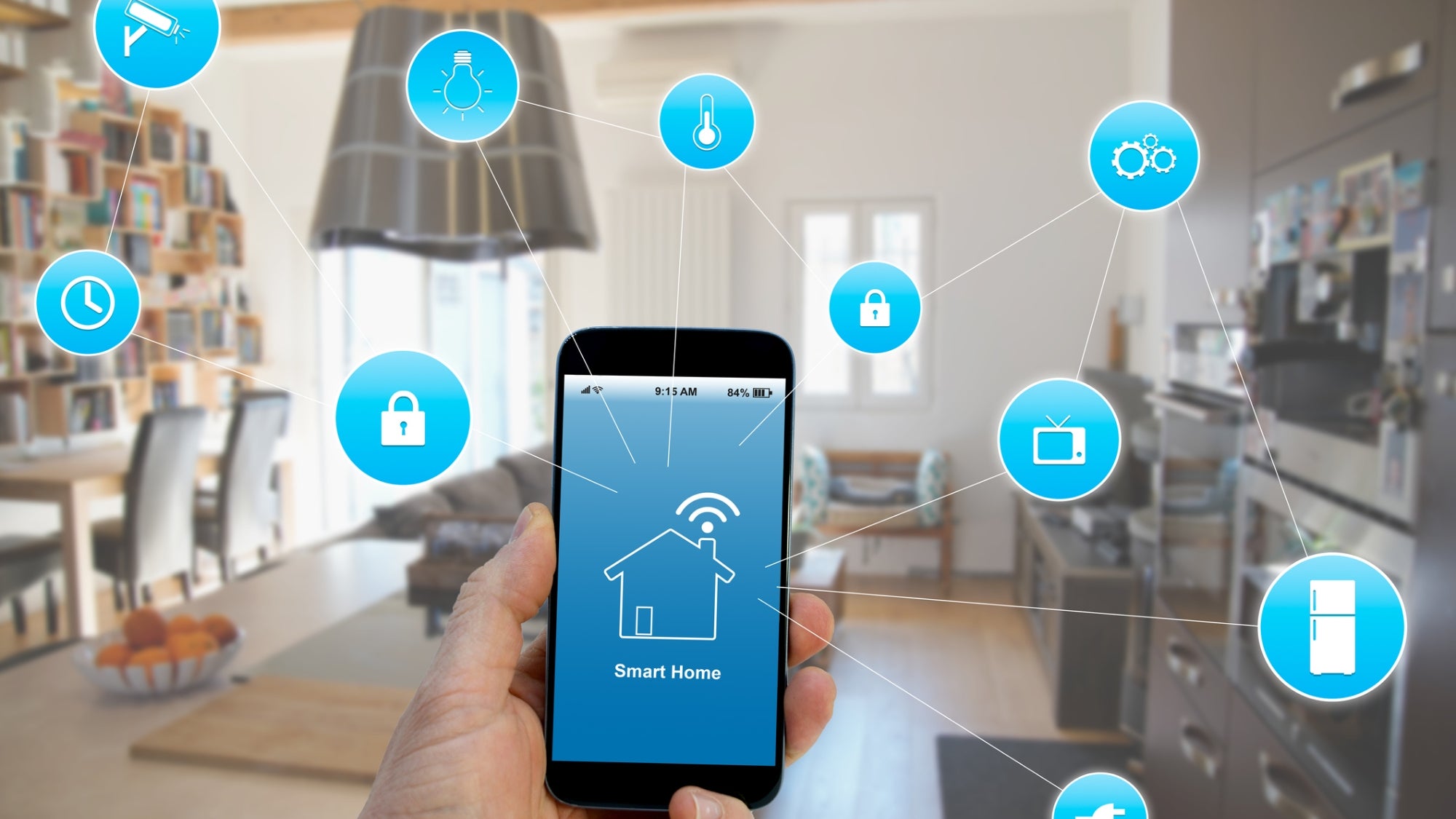Chapter 2
In an era where technology permeates every facet of our lives, ensuring the safety of our homes has become more complex and essential. Traditional security measures are no longer sufficient to counter the sophisticated threats of the digital age. Smart home security systems offer a comprehensive solution, integrating advanced technology to protect our homes and personal data.
The Rise of Smart Home Technology
Smart home technology has seen exponential growth, According to EC Electronics approximately 39% of UK households now using smart devices—a figure projected to exceed 50% by 2027. This surge is driven by the convenience, energy efficiency, and enhanced security these systems provide.
Integration and Automation

Modern smart homes feature integrated systems that allow users to control lighting, heating, and security through a single interface. Voice-activated assistants like Amazon Echo and Google Home have become central hubs, enabling seamless automation and control.
Enhancing Home Security
Smart security systems offer real-time monitoring and alerts, providing homeowners with immediate information about potential threats. Features such as motion detectors, smart locks, and surveillance cameras can be managed remotely, ensuring constant vigilance.
Proactive Threat Detection
Advanced systems utilize AI to analyze patterns and detect anomalies, allowing for proactive threat detection and response. This technology not only alerts homeowners but can also notify emergency services, ensuring swift action.
Protecting Privacy in a Connected World
While smart devices offer numerous benefits, they also pose potential privacy risks. Devices that collect and transmit data can be vulnerable to hacking if not properly secured.
Implementing Strong Security Measures
To safeguard personal information, it's crucial to implement robust security measures:
Secure Passwords: Use complex, unique passwords for each device.
Two-Factor Authentication: Enable additional verification steps to prevent unauthorized access.
Regular Updates: Keep device firmware and software up to date to patch vulnerabilities.
By taking these precautions, homeowners can enjoy the benefits of smart technology without compromising their privacy.
Energy Efficiency and Cost Savings
Smart home systems contribute to energy efficiency by optimizing the use of appliances and utilities. Smart thermostats and lighting systems adjust settings based on occupancy and time of day, reducing unnecessary energy consumption.
Financial and Environmental Benefits
These efficiencies translate into cost savings on utility bills and a reduced carbon footprint, aligning with the growing emphasis on sustainable living.
Supporting Independent Living
Smart home technology also plays a significant role in supporting individuals with disabilities and the elderly, promoting independent living. Features like voice-controlled appliances and automated systems enable users to perform daily tasks with ease. New York Post
Enhancing Quality of Life
By facilitating autonomy and reducing reliance on caregivers, smart homes enhance the quality of life for individuals requiring assistance, fostering a sense of independence and dignity.
Conclusion
Adopting smart home security systems is no longer a luxury but a necessity in today's digital landscape. They offer comprehensive protection, enhance privacy, promote energy efficiency, and support independent living. For UK households seeking a reliable and advanced security solution, Triplelocked provides easily accessible smart home security products tailored to meet your basic needs.
As security becomes increasingly intelligent and user-friendly. Explore the next chapter “Understanding Home Security Automation: How It Works for Everyone”